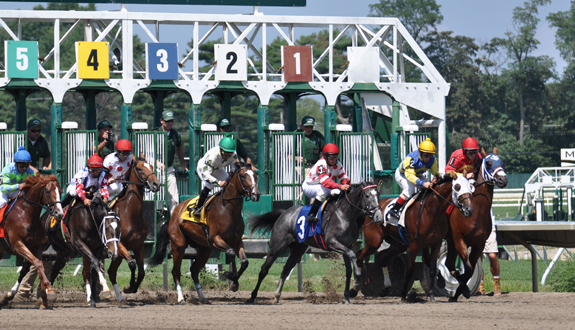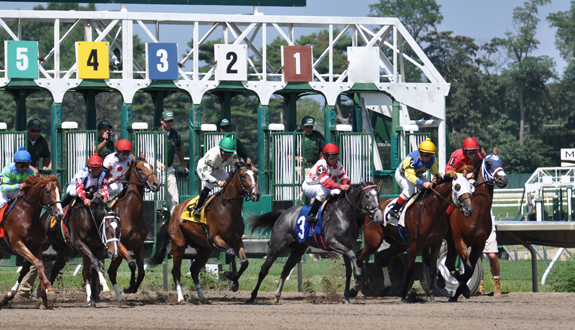At the Starting Gate of Your LSAT Class
- by
- Dec 08, 2011
- General LSAT Advice, LSAT
- Reviewed by: Matt Riley


Blueprint classes for the February LSAT are kicking off this week, and students across the U.S. are encountering the LSAT for the first time, the start of a relationship that over the next few months will blossom (hopefully) into a full blown, Hugh Grant-worthy love affair with the logic of the LSAT.
And while the February LSAT may seem distant and these first lessons straightforward and somewhat introductory, it’s of the utmost importance that you gain a solid understanding of these initial concepts. The methods in the class build upon themselves. These first few lessons provide the foundation for everything to come; not fully understanding validity or logical force will do more than interfere with your success on Must Be True questions, it will destroy your ability to spot a flawed argument, much less strengthen/weaken one, not to mention finding sufficient and necessary assumptions. Oh, and by the way, those 5 question types make up roughly half of your logical reasoning score on the LSAT. Yeah, it’s kind of important (and we haven’t even touched conditional diagrams yet).
The LSAT is essentially a skill based test – unlike other horrifically arcane standardized tests, you don’t have to memorize laundry lists of information soon to be forgotten, you just need to learn how to think differently: logically – and because of this, the LSAT is not a test you can cram for. Skill develops slowly and only with consistent practice; start now and come February you’ll be gung-ho and good to go, wait ’til the last minute hoping you can cram everything in a week and your Hugh Grant love affair will quickly turn Chris Brown.
With that said, the study habits you establish in these first weeks will largely determine your eventual success on the LSAT. And to help you make the most of your time, here are a couple of suggestions to approach studying going forward.
• Focus on the process, not the results. Don’t worry about getting the right answer, worry about practicing the method properly. Getting questions wrong this early in the game is good, great even. A mistake reveals a hole in your ability; it’s a chance to learn and improve. Make sure you view it as such, and then…
• Review, review, review. Every question you get wrong should be reviewed thoroughly. Answer four questions: Why is the answer I chose incorrect? Why is the right answer correct? Why did I think the wrong answer was right? Why did I think the right answer was wrong? Learn from your mistakes or be doomed to repeat them.
• Practice deliberately. Don’t view homework as simply an item on your to-do list, as though just finishing it was the purpose. Homework is an opportunity to learn, an opportunity to practice the methods so you internalize and master them. Practice perfectly from the beginning. Don’t study when you’re exhausted with eyes glazed over – you’re apt to revert to a subpar approach, make careless mistakes, and reinforce bad habits. Short, frequent blocks of practice will keep you fresh and help you learn.
Search the Blog

Free LSAT Practice Account
Sign up for a free Blueprint LSAT account and get access to a free trial of the Self-Paced Course and a free practice LSAT with a detailed score report, mind-blowing analytics, and explanatory videos.
Learn More
Popular Posts
-
logic games Game Over: LSAC Says Farewell to Logic Games
-
General LSAT Advice How to Get a 180 on the LSAT
-
Entertainment Revisiting Elle's LSAT Journey from Legally Blonde








